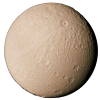Sidebar
This is an old revision of the document!
Table of Contents
Elysia Novus
| Elysia Novus | |||
|---|---|---|---|
 | Owner | Elysian Celestial Empire | |
| Population1) | ~3,100,000,000 | ||
| Assets | 3 Planetary Shipyards | ||
Settled by the Elysians in AD MMMCMLXXXIX (AD 3989) following their defeat by the Army of Uesureya in the Third Elysian War, the third planet of the Elysia Novus star system - known as Elysia Novus in Seraphim and New Elysia in Trade - is the capital and (new) homeworld of the Elysian Celestial Empire.
The Yamatai Star Empire placed a global communications network of Emrys Industries EM-O3 "Hirakeru" Communication Satellites into orbit in AD MMMMVII (AD 4007). Trinary Star Shipping, which has storefronts in all of the planet's major cities, is the primary provider of shipping services; lastly, Iemochi Applied Technologies - a subsidiary of Iemochi Innovations & Sales - has its headquarters located in Empyrean.
Since AD MMMMVII (AD 4007), Elysia Novus has been part of the PAINT transit system. A Star Army of Yamatai-operated terminal with flights to amatsu_yamatai, Elysia Veteris every two hours can be found at the Diplomatic Institute in Empyrean.
More about Elysia Novus
The following section contains specific information about various aspects of Elysia Novus.
Star
Elysia Novus orbits around the similarly-named star of Elysia Novus once every 252 days at a distance of one astronomical unit - equivalent to 149,600,000 kilometers or 92,957,130.3587 miles - and has a day that lasts 30 hours.
- Radius: 818,000.0 kilometers2)
- Mass: 2.67 x 1030 kilograms3)
- Temperature: 5,326.85 °C4)
- Luminosity: 6.25 x 1026 watts
Environment

Elysia Novus is a pleasant planet, with most regions having a warm temperate climate. The most common terrain type is that of mountains, with forests coming a close second. Strangely enough, the planet only has two 'continents,' a single ocean, numerous seas of great size, and a vast number of variously-sized islands.
The temperature of Elysia Novus varies greatly in places such as at the planetary equator and the north and south poles; for the majority of the planet, however, the average temperature is between 14 degrees Celsius (57.2 degrees Fahrenheit) and 19 degrees Celsius (66.2 degrees Fahrenheit), getting colder as one goes higher up in elevation.
Elysia Novus once had indigenous fauna, however the Elysians have largely disposed of any that didn't fit in with the new ecosystem they brought with them from Elysia Veteris - hence the land is now occupied entirely by flora and fauna either introduced by or designed by the Elysians.
Cities
The capital of Elysia Novus is Empyrean and is by far the largest city on the planet, with the majority of the population scattered in smaller settlements that are typically based around a Patrician's estate.
Points of Interest
Population
Given its status as the capital and homeworld of the Elysian Celestial Empire, the population of Elysia Novus is unsurprisingly composed almost entirely of Elysians, with the only exception being the roughly twenty thousand Yamataians stationed at the Diplomatic Institute.
AD MMMMX (AD 4010) Planetary Census Results
- Caelisolans: 64.7%10)
- Patricians: 20.0%11)
- Yamataians: 0.00007%13)
- Planetary Population: ~3,096,900,000 Elysians, ~20,000 Yamataians
Planetary Information
| Orbit | Physics | ||||
|---|---|---|---|---|---|
| Orbital Radius | 1 Astronomical Unit14) | Type | Terrestrial (Standard Iron) | ||
| Orbital Period | 252 days | Radius | 5,956.3 kilometers15) | ||
| Gravimetry | Hill Sphere Radius | 1,278,529.5 kilometers16) | |||
| Surface Gravity | 0.96g17) | Surface Area | 446,000,000.0 kilometers218) | ||
| Escape Velocity | 10.56 kilometers/second19) | Land Area | 205,000,000.0 kilometers220) | ||
| Rotation | Mass | 5.00 x 1024 kilograms21) | |||
| Axial Tilt | 46.12° | Density | 5.65 grams/centimeter322) | ||
| Rotation Period | 30 hours | Physical Composition | Percentage | Element | |
| Atmosphere | 47.6% | Iron | |||
| MSL Atmospheric Pressure | 96.7 kilopascals23) | 25.0% | Oxygen | ||
| Atmospheric Composition | Percentage | Element | 19.2% | Silicon | |
| 74.4% | Nitrogen | 5.3% | Aluminum | ||
| 25.5% | Oxygen | 2.3% | Other metals | ||
| 0.01% | Other elements | 0.7% | Other elements | ||
| Biosphere | Hydrosphere | ||||
| Biosphere Type | Carbon-based | Hydrosphere Composition | Percentage | Type | |
| Lifeforms | Flora and Fauna | 55% | Water | ||
| 7% | Ice | ||||
Planetary Map
 |
Satellites

Elysia Novus has an unusually large satellite - called Angelus Novum - that is notable for being particularly reflective of Elysia Novus' rays.
OOC Notes
Page Tools
Terms of Service - Privacy Policy

